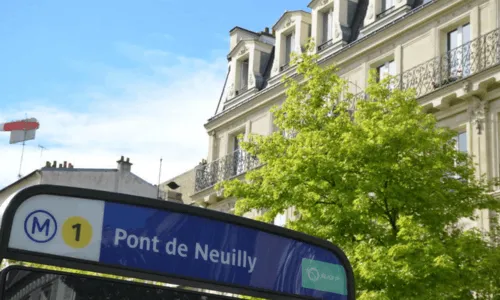How to buy a new apartment?
Buying a new home means taking advantage of reduced notary fees, customizing the layout of your apartment and having a DPE A which allows you to save energy all year round! Discover all the steps of buying a new one in this article.
📅
17/7/2025

In 2025, many first-time buyers are opting for new real estate. Energy standards, reduced notary fees, solid guarantees: the advantages of buying off-plan are numerous. But buying something new is not quite the same buying process as buying an old one. Find out everything you need to know in this article.
Why choose a new apartment?
Buying a new home provides access to modern and well-insulated housing. Energy performance is certified, with sustainable savings. Notary fees are reduced (2 to 3% compared to 7% in the old one). You also benefit from manufacturer guarantees: civil liability, biennial, decennial.
Understanding the off-plan purchase
Buying a new home under VEFA (Sale in the Future State of Completion) involves a very different operation from buying in an old one. You are not buying an existing property, but a project to be built. It is therefore necessary to fully understand how the contractual process and the payment schedule are structured to avoid unpleasant surprises.
How does off-the-shelf sales work?
In VEFA, you buy a home “on plan” from a real estate developer. This means that you are committed to acquiring a property that is not yet built or that is only partially built. Legally, you become the owner as the work progresses.
Concretely, you first sign a reservation contract, which specifies the characteristics of the accommodation (surface, floor, number of rooms, price including VAT, etc.) as well as the estimated dates of signature and delivery. This contract gives rise to the payment of a security deposit :
- 5% of the price if the signature at the notary takes place within 12 months;
- 2% if the signature takes place between 12 and 24 months;
- No deposits beyond 24 months.
The real commitment is then made via the VEFA sales contract, signed in front of a notary. This contract is highly regulated by law (articles L.261-1 and following of the Construction and Housing Code). In particular, it contains:
- The technical description of the property (plans, materials, equipment),
- The work schedule,
- Guarantees (completion, delivery, damage to the work, etc.),
- The schedule of calls for funds.
💡 Note: as soon as you sign the notarial act, you are the legal owner of the land and of the buildings in progress, even if you haven't paid anything yet at this point. This particularity implies a strong commitment to the promoter and the banker.
The typical timeframe for a new home purchase
The purchase under VEFA follows a Strict schedule, punctuated by the progress of the construction site. The promoter can only call the funds at specific stages, set by decree. Here is an example of a common breakdown:
Each call for funds triggers a transfer that you must make via your bank (the mortgage is gradually released), and each step can be physically verified on site.
Concrete example
You buy an apartment at €240,000 including VAT.
- At the end of the foundations, you must contribute €84,000 (35%).
- When it is out of water (roof installed), you reach €168,000.
- At the time of delivery, the balance of €12,000 is paid.
Delivery and lifting of reservations
When the keys are handed over, you make a delivery visit, often accompanied by a representative of the promoter. It is advisable to come with an independent expert if you have any doubts about finishes or compliance.
You are establishing a delivery report, which may include reservations (defects noted, delays, non-conformities). The promoter then 30 days to 2 months to remove them, depending on the nature of the defects.
You are also protected by:
- La guarantee of perfect completion (1 year),
- La biennial guarantee on equipment items (2 years),
- La 10-year warranty on the structure (10 years).
Finance your new home purchase
Buying a new home on an off-plan basis requires a financing strategy adapted to the project: the property is built as you go, and you will only pay for it in stages. Several assistance mechanisms and a well-structured home loan can considerably alleviate the financial effort.
The aids and devices available in 2025
In 2025, several devices exist to facilitate the purchase of new housing, especially for first-time buyers.
🔹 The Zero Rate Loan (PTZ) remains the most well known aid. It allows you to borrow part of the purchase price without paying interest. It is reserved for buyers who have not owned their main residence for 2 years, and depends on your income and the area where the home is located.
- In zone B1 (ex: Nantes, Lyon, Bordeaux), the PTZ can finance up to 40% of the total cost of the operation.
- In zone B2 or C (medium-sized cities or peripheries), it is limited to 20% or 30%.
Example:
In Brest (zone B2), a couple with 2 children can get €25,000 unto 0% for the purchase of a new apartment of €200,000, provided that their income does not exceed €57,000 per year.
(Source: Service-public.fr PTZ 2025)
🔹 VAT reduced to 5.5% is applicable if the property is located in a priority district (QPV) or ANRU zone, and if the household respects resource ceilings. This represents an economy of 14.5% on the final price.
Example:
For a new home displayed at 240,000€ TTC and 20% VAT, you can pay 204,000€ if you are eligible for reduced VAT. Either €36,000 in savings, as long as you live there for at least 10 years.
(Source: economie.gouv.fr — Social housing VAT)
🔹 Specific local aids : several cities and metropolises offer grants or subsidies to support home ownership in new buildings.
Example:
In Nantes, the “Affordable Accession” system allows you to benefit from a grant up to €20,000 for the purchase of a new home if you are a first-time buyer and buy in an approved program.
(Source: nantesmetropole.fr)
These helpers are often cumulative between them, which can represent a considerable reduction in the purchase price or the amount to be borrowed.
Obtaining a mortgage for an off-plan property
Financing an off-the-shelf purchase does not work as in the old one. The loan is of course subject to conventional bank validation (income, debt ratio, contribution, etc.), but the funds are not paid out all at once.
Credit is unlocked progressively according to the promoter's calls for funds. At each stage (foundations, roof, partitions...), the bank releases part of the loan, and you start to repay only the interest corresponding to the amount used. That's what we call Intercalary interests.
Example:
You buy an off-plan home at €240,000. Construction is spread over 18 months. During the first 6 months, only 35% are called (€84,000). So you only pay interest on this amount.
- If your rate is 3%, the monthly payments during the construction phase will be approximately 210 €/month.
- Once the full amount is unlocked, you start to repay the principal, which is approximately 1,050 €/month (excluding insurance).
💡 It is often possible to ask to postpone the repayment of the capital until the keys are handed over. This flexibility allows continue to pay rent while financing your future home.
Think about borrower insurance
As with any mortgage, you must take out a borrower insurance, which covers the risks of death, disability, or even job loss depending on the contracts.
But be careful: during the construction phase, you are already the legal owner. Insurance must therefore cover the entire loan from the first call for funds, even if you do not yet live in the home. Remember to compare offers: since the Lemoine law, you can change insurance at any time.
Example:
For a loan of €220,000 over 25 years, insurance can cost between €20 and €60/month according to your age and health condition.
Visit, book, sign: key steps
Buying a new apartment does not start with a physical visit to the property, but with a careful reading of plans, contractual commitments and the solidity of the developer. These first steps are decisive in securing your project from the start.
How do you choose a serious promoter?
The choice of the promoter is as important as choosing housing. You are committed to a property that does not yet exist, so you must be able to trust the operator who will bring the work to completion.
Here are the elements to check in concrete terms:
- The reputation of the promoter : Google their name, check customer reviews on Immodvisor or Trustpilot, and ask to visit their past projects in the same city.
- Quality guarantees : choose promoters who display certifications such as NF Habitat HQE, RT 2020, or even environmental labels. These guarantees ensure a high level of performance in terms of insulation, ventilation and equipment.
- Its financial solidity : a recognized promoter is generally backed by a large group (Nexity, Bouygues Immobilier, Icade...). This limits the risk of construction site abandonment.
- The financial guarantee of completion (GFA) : it is The ultimate insurance in the event of failure of the promoter. It is mandatory, but you must have written proof of it before signing.
Concrete example:
You are hesitating between two programs in Toulouse. One is led by an unknown local developer, the other by a national operator certified NF Habitat HQE with sites delivered in Lyon and Montpellier. It is better to rely on long-term reliability, even if the price is slightly higher.
💡 Tip: feel free to pass by the construction site or attend a public presentation meeting. The attitude of the promoter, the clarity of the documents provided and its availability are often indicative of his seriousness.
What does the reservation contract contain?
The reservation contract is The first contractual document that you will sign. It is a mutual commitment between you and the promoter, who guarantees you the reservation of accommodation for a limited period of time (generally 3 to 6 months, the time required to sign the notarial act).
It must contain:
- The detailed description of the property : living area, number of rooms, floor, orientation, orientation, ancillary lots (balcony, parking, cellar...).
- The sales price including VAT, and distribution (housing, parking, common areas...).
- The amount of the security deposit, often 5% of the price if the sale is signed within the year.
- The date of signature of the final contract at the notary.
- The estimated delivery date (sufficient quarter, e.g. Q4 2026).
- The suspensive conditions, in particular getting your home loan.
Concrete example:
You sign a reservation contract for a T3 at €300,000 in Rennes. You have to pay €15,000 security deposit (5%), blocked on an equestrian account. The contract specifies a delivery to 2nd quarter 2026, and contains a clause allowing you to withdraw if your loan is refused.
- Attention: this contract is only fully binding on you after signing the VEFA contract at the notary. But as soon as you sign, you have 10 days to retract without cause or penalty.
- Practical advice: before signing, have the contract reviewed by a notary or an independent professional. Also check the technical description, because it engages the promoter on the finishes (floors, coatings, equipment, etc.).
From signature to delivery
After signing the VEFA sales contract at the notary, you gradually buy your apartment. Unlike an old property, you don't pay for everything at once. Housing is financed at the rate of construction. And once the work is finished, you take ownership of it after a careful visit, sometimes accompanied by some adjustments.
Fundraising: payment steps
In off-plan, payment is staggered according to the progress of the work. It is the sponsor who, at each regulatory stage reached, sends you a Fundraising. You or your bank (via your mortgage) then pay the requested amount.
The law strictly regulates the ceilings that the promoter may require:





